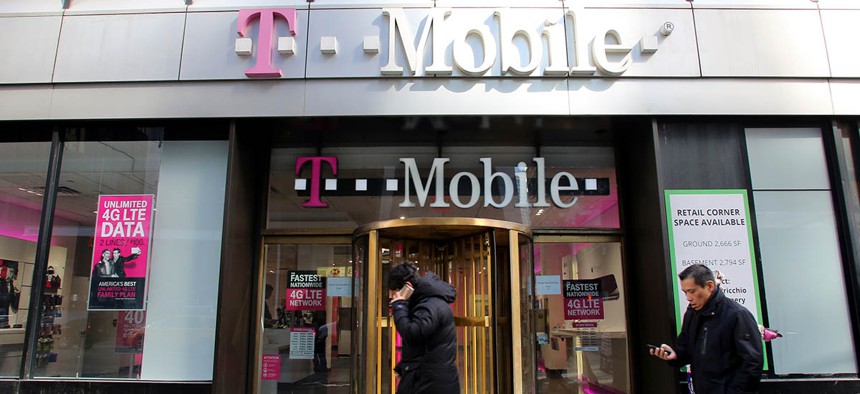Does T-Mobile’s Free Video Plan Violate Net Neutrality?

Northfoto/Shutterstock.com
T-Mobile will let customers watch Netflix without burning through their data plans.
T-Mobile CEO John Legere bragged Tuesday that he’s giving consumers “exactly what they want” by letting them watch popular video services like Netflix and HBO on their mobile devices without counting it against their monthly data packages.
But consumer advocates pounced on the new “Binge On” program, warning that it could tilt the Internet in favor of the biggest companies, violating the principle of net neutrality.
“As it stands, it looks like a net-neutrality violation right now,” said Barbara van Schewick, a professor at Stanford Law School and a leading net-neutrality supporter. “The essence of net neutrality is that we don’t want Internet service providers to pick winners and losers.”
T-Mobile’s program exempts two dozen video sites—including Hulu, ESPN, Fox Sports, and Showtime—from data caps, and the company says that any other video-streaming services that meet certain technical requirements can participate. YouTube, however, is not part of the initial program. The sites will stream at a slightly lower quality than normal.
“With Binge On, no one pays—not the customers, not the video-streaming services—and everyone wins,” Legere said during an event to unveil the new program. “We want you to stop watching your data and start watching your shows.”
But van Schewick warned that the technical requirements to participate could be onerous for fledgling startups, and small companies in other countries might not even know the program exists. In the long run, T-Mobile’s program could give major media companies a big leg up, ultimately leading to less innovation online, she said. “As a customer, you ultimately lose if there are less video-streaming services available,” she argued.
The Federal Communications Commission enacted sweeping net-neutrality regulations earlier this year that ban Internet providers from blocking websites, slowing down traffic, or creating any special “fast lanes” for sites that pay. The commission chose not to take a position on “zero-rating” policies (like T-Mobile’s Binge On) that exempt certain services from data caps. But the agency left itself room to crack down on those programs under a broad provision that Internet providers can’t “unreasonably interfere” with the ability of Internet users to access the content of their choice. The FCC didn’t respond to a request to comment on T-Mobile’s announcement Tuesday.
T-Mobile, which is trying to find new ways to steal customers from Verizon and AT&T, already launched a similar program called Music Freedom last year that exempted music-streaming services from its data caps. Consumer advocates also expressed concern about that program, although the FCC hasn’t taken any action.
John Bergmayer, a senior staff attorney for the consumer-advocacy group Public Knowledge, warned that T-Mobile’s programs could ultimately stifle competition and leave consumers worse off. “I think in the long term, moving the mobile Internet towards a walled garden is not in anyone’s interest,” he said.
And Matt Wood, the policy director of activist group Free Press, said cellular providers should just get rid of data caps altogether and let consumers access an unlimited amount of online content of their choice. “It’s a cheap sales trick: First you fabricate a problem for customers; then you make that problem go away and act like you’ve done them a huge favor,” he said in a statement.
Republicans and business groups have warned that the FCC’s net-neutrality rules are discouraging investment in broadband networks and preventing Internet providers from experimenting with innovative business models. There shouldn’t be any legal uncertainty around a program to give consumers free access to videos, they argue.
Legere dismissed the net-neutrality concerns during Tuesday’s event. “It’s a feature, and it’s complete customer choice,” the T-Mobile chief executive said. “We think it’s highly net-neutrality-friendly.”
(Image via Northfoto/Shutterstock.com)
NEXT STORY: How DISA is helping to connect FirstNet






